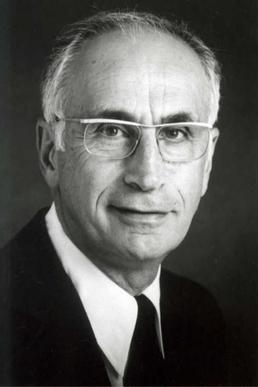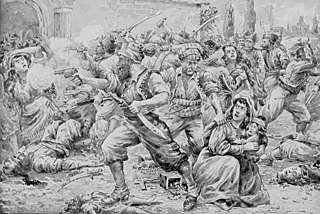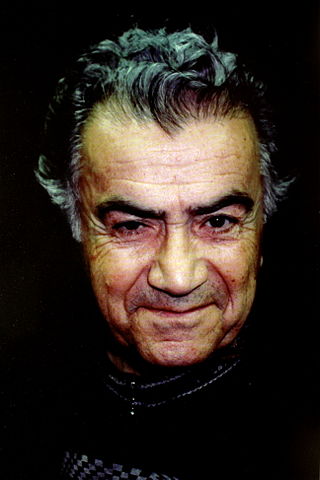Related Research Articles

The Hurrians were a people of the Bronze Age Near East. They spoke a Hurrian language and lived in Anatolia, Syria and Northern Mesopotamia. The largest and most influential Hurrian nation was the kingdom of Mitanni, its ruling class perhaps being Indo-Aryan speakers. The population of the Hittite Empire in Anatolia included a large population of Hurrians, and there is significant Hurrian influence in Hittite mythology. By the Early Iron Age, the Hurrians had been assimilated with other peoples. The state of Urartu later covered some of the same area.

Armenians are an ethnic group native to the Armenian highlands of Western Asia. Armenians constitute the main population of Armenia and the de facto independent Artsakh. There is a wide-ranging diaspora of around five million people of full or partial Armenian ancestry living outside modern Armenia. The largest Armenian populations today exist in Russia, the United States, France, Georgia, Iran, Germany, Ukraine, Lebanon, Brazil, and Syria. With the exceptions of Iran and the former Soviet states, the present-day Armenian diaspora was formed mainly as a result of the Armenian genocide.

Armen Albert Alchian was an American economist. He spent almost his entire career at the University of California, Los Angeles (UCLA). A major microeconomic theorist, he is known as one of the founders of new institutional economics and widely acknowledged for his work on property rights.
Peter Nathaniel Stearns is a professor at George Mason University, where he was provost from January 1, 2000 to July 2014.

Peter Balakian is an American poet, prose writer, and scholar. He is the author of many books including the 2016 Pulitzer prize winning book of poems Ozone Journal, the memoir Black Dog of Fate, winner of the PEN/Albrand award in 1998 and The Burning Tigris: The Armenian Genocide and America's Response, winner of the 2005 Raphael Lemkin Prize and a New York Times best seller. Both prose books were New York Times Notable Books. Since 1980 he has taught at Colgate University where he is the Donald M and Constance H Rebar Professor of the Humanities in the department of English and Director of Creative Writing.

Anti-Armenian sentiment, also known as anti-Armenianism and Armenophobia, is a diverse spectrum of negative feelings, dislikes, fears, aversion, racism, derision and/or prejudice towards Armenians, Armenia, and Armenian culture.

George A. Bournoutian was an Iranian-American professor, historian, and author of Armenian descent. He was a Professor of History and the author of over 30 books, particularly focusing on Armenian history, Iran and the Caucasus. He taught Iranian history at UCLA, and Armenian history at Columbia University, Tufts University, New York University, Rutgers University, the University of Connecticut, Ramapo College, and Glendale Community College and Russian and Soviet history at Iona College. Bournoutian was one of the 40 editors of the Encyclopaedia Iranica.

Richard Gable Hovannisian is an Armenian American historian and professor emeritus at the University of California, Los Angeles. He is known mainly for his four-volume history of the First Republic of Armenia.

Armenia, officially the Republic of Armenia, is a landlocked country in the Armenian Highlands of Western Asia. It is a part of the Caucasus region; and is bordered by Turkey to the west, Georgia to the north, the Lachin corridor and Azerbaijan to the east, and Iran and the Azerbaijani exclave of Nakhchivan to the south. Yerevan is the capital, largest city and the financial center.

Stanford Jay Shaw was an American historian, best known for his works on the late Ottoman Empire, Turkish Jews, and the early Turkish Republic. Shaw's works have been criticized for their lack of factual accuracy as well as denial of the Armenian genocide, and other pro-Turkish bias.

Bagrat Arshaki Ulubabyan was an Armenian writer and historian, known most prominently for his work on the histories of Nagorno-Karabakh and Artsakh.

Robert Peter Gale is an American physician and medical researcher. He is known for research in leukemia and other bone marrow disorders.
Armenian studies or Armenology is a field of humanities covering Armenian history, language and culture. The emergence of modern Armenian studies is associated with the foundation of the Catholic Mechitarist order in the early 18th century. Until the early 20th century, Armenian studies were largely conducted by individual scholars in the Armenian communities of the Russian Empire, Europe, Constantinople and Vagharshapat in Armenia. After the establishment of Soviet rule, Armenian studies, and sciences in general, were institutionalized in Armenia and put under direct control of the Academy of Sciences. Today, numerous research centers in many parts of the world specialize in Armenian studies.
Ufahamu: A Journal of African Studies is a graduate-student run, peer-reviewed academic journal published at the University of California, Los Angeles (UCLA). It was established by the UCLA African Activist Association in 1970 and named after the Swahili word for comprehension, understanding, or being. The journal is published three times a year and is available from the University of California's eScholarship website. It describes itself as the "oldest student-run journal of Africanist scholarship."
Heath Ward Lowry is the Atatürk Professor of Ottoman and Modern Turkish Studies emeritus at Princeton University and Bahçeşehir University. He is an author of books about the history of the Ottoman Empire and Modern Turkey.
James Peter Timothy Clackson is a British linguist and Indo-Europeanist. He is a professor of Comparative Philology at the Faculty of Classics, University of Cambridge, and a Fellow and Director of Studies at Jesus College, Cambridge.

Namus is a 1925 silent drama film by Hamo Beknazarian, based on Alexander Shirvanzade's 1885 novel of the same name, which denounces the despotic rites and customs of Caucasian families. It is widely recognized as the first Armenian feature film.
Christina Maranci is an Armenian-American researcher, writer, translator, historian, and professor at currently serving as the Mashtots Professor of Armenian Studies at Harvard University. She is considered an expert on the history and development of Armenian architecture.
Stefan Ihrig is an academic, author, and speaker. He is professor of history at the University of Haifa and director of the Haifa Center for German and European Studies. His research interests are European and Middle Eastern history, with a focus on media and political and social discourse. His 2014 and 2016 books dealing with German-Turkish history and entanglement have elicited critical praise. He is also an editor of the Journal of Holocaust Research published by the University of Haifa and has contributed articles for HuffPost, Tablet, Haaretz, and History Today, among other publications.
References
- 1 2 3 Hovannisian, Richard G., ed. (2004). Armenian Sebastia/Sivas and Lesser Armenia. Costa Mesa, Calif.: Mazda Publ. ISBN 1568591527.
- ↑ "Peter Cowe". Armenian Studies: UCLA. Archived from the original on April 3, 2013. Retrieved 20 February 2013.
- ↑ Sullivan, Meg. "A 'Renegade' Classical Scholar". UCLA Today. Archived from the original on April 7, 2013. Retrieved 20 February 2013.